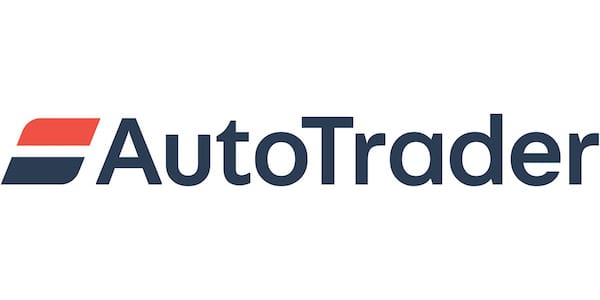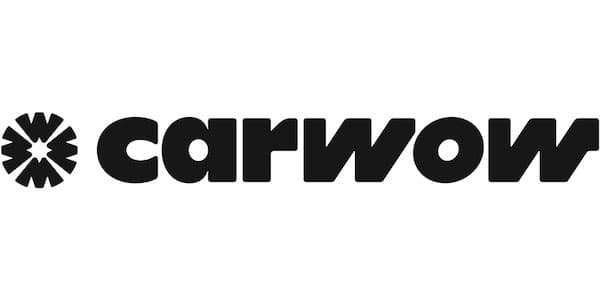Last month, we looked at why your part-exchange valuation from the dealer was much lower than you expected (if you haven’t read it, follow the link above and have a look. Don’t worry, we’ll be right here when you get back). But the reality is that although people tend to be outraged by dealers allegedly swindling them on their car’s value, there’s usually a lot of things that they could have done which would have helped.
Today, we’ll help you make sure you get the best price you possibly can when you sell your car, whether it’s a part-exchange or a private sale. Tick all of these boxes and you will maximise your car’s value. But even if you only manage some of these recommendations, you’ll be hundreds or even thousands of pounds better off. So it’s worth reading on…
Do your homework before trying to part-exchange your car
Whether buying or selling a car, the simplest rule is that the more homework you do, the better off you will be.
If we step backwards for a bit, it all starts the moment you take delivery of your new car. For the whole time you own the car, you should keep all of your maintenance records so that you can show a buyer everything that has been done to the car.
This includes MOT certificates, invoices for tyres and other consumables, and most importantly, service records. As well as being a warranty requirement that you have your car serviced on time, every time, it will significantly hurt your resale value if you don’t have proof of the car’s service history.
You will get a better price for your car if it has been serviced at an official service centre (ie – at the dealership), but then this will probably cost you more as well. Make sure you have the service books in the car when you have it serviced so that they get stamped, and make sure you check that this has been done before you drive away – every single time.
When I was working in the automotive retail industry, I saw dozens and dozens of cars with little or no documented service history, because “I don’t keep the books in the car” or “they forgot to stamp the book”.
Usually, it really meant “I haven’t had it serviced at all”, and that is exactly what a dealer (or any other buyer) will assume.
Get a quote from an online buying service
For many car buyers, part-exchanging your car will never get you as much money as selling it to a dedicated car buying service. Even if you do prefer the ease of handing your old car over and collecting your new car all in one go, you should absolutely make sure that you’re not losing hundreds or even thousands of pounds by selling it too cheaply as a part-exchange. We work with the following four companies, all big names in the UK and highly respected, but other brands are also available.
Make sure your service book is stamped – every time
If you have had the car serviced, but for whatever reason you don’t have any official records, then go back to the dealer/service centre and get them to issue you with a duplicate invoice and stamp your book.
If you have moved too far away to visit them, at least call them and ask them to email or post an invoice. I have seen people post their service books to a dealer to stamp and send back, which is great – although it risks the service book getting lost altogether.
If you take one piece of advice from this article, it is to keep all of your service and maintenance records. Your car’s value will be penalised by hundreds of pounds (or even more, if it’s a performance or luxury car) if you can’t show evidence of servicing.
Have your log book and MOT records ready

Your registration papers (V5C, known as the log book) is the proof that you are the keeper. Your MOT certificate is proof that your car is legal and roadworthy, although these are now done electronically rather than being printed.
If you don’t have your log book available, you can’t legally sell or part-exchange your car. The DVLA will charge you £25 for a replacement V5. Save yourself money and hassle by not losing it in the first place – which brings us to…
Make sure you have all your bits and pieces
Spare keys, owner’s books, seat headrests, towbar wiring, rear parcel shelves, floor mats, spare wheel, first-aid kit, warning triangle, and so on. If it can be removed from your car, someone will eventually lose it.
Make sure that all the bits that go with your car are on board when you present it to a dealer or private buyer for their part-exchange appraisal. Muttering “Oh yeah, I’ve got those bits somewhere in the garage” is usually interpreted as “I have no idea where those bits went and I am not going to be able to find them”, and your car’s price will be marked down accordingly.
This is especially important for car keys – on a modern car, a key can cost over £300 and may have to be ordered from the manufacturer’s HQ. Plus it’s a security issue, as it means that there is possibly another key to your car out there somewhere. Losing a key can cost you a fortune.
Turn your house upside down if you have to, but make sure you have all the keys in hand before you bring your car to a dealership.
Don’t try and sell your car just before a service or MOT is due
If your car is more than three years old, it has to have an MOT roadworthiness test every year. Most cars will also need servicing every year. Yes, these will both cost you money – especially if there is any additional work required.
Car dealers are generally not stupid – if you try to part-exchange your car just before either the service or MOT is due, then they will be very suspicious of your timing. Is there a major problem with the car that will require big spending that you are trying to avoid?
If you can schedule your car buying and selling for halfway through your MOT/service schedule, you won’t have wasted all the money you spent to have them done but won’t be penalised for selling just before they’re due.
Some dealers will now insist that your car has at least three months’ MOT remaining, and if it doesn’t then you will need to get it re-tested before you can part-exchange the car.
Should you tidy up any minor damage?
Many people will now take out some kind of minor damage insurance policy when they buy a car, which covers you for little dents/scuffs/scratches. I’m not going to argue for or against these policies, but if you have paid for one then make sure you are using it to your full entitlements.
If you are entitled to have your kerbed wheels fixed up, then get that done. If you are eligible for any work from your insurances, get it done. It won’t cost you anything (unless you have an excess, and that’s usually small) but will improve your car’s appearance – and therefore, its part-exchange value.
If you don’t have any minor damage cover, then you need to assess how much it would cost to have it repaired. If the repairs are inexpensive but make a noticeable difference, it’s probably worth getting them done – especially if you are selling the car privately.
With a part-exchange to a dealer, however, bear in mind that the dealer can probably get any repair work done cheaper than you can, so it may not be worth doing unless it looks horrendous.
An hour of cleaning could be worth hundreds of pounds
First impressions count in any situation, and valuing your car is no different. If you turn up to a dealership with a car that is filthy dirty, their assumption will be that you don’t care about your car – which means there are more likely to be hidden problems underneath that you haven’t bothered fixing, and your car will be valued lower.
If you turn up with a car that is clean both inside and out, with sparkling paintwork and a properly vacuumed interior (with all your rubbish taken out and put in a bin!), it gives the impression that you are fastidious about your car and a dealer will tend to assume that you have attended to any problems which have occurred.
It may not be remotely true, but they are valuing your car based on what they can see. Put yourself in the buyer’s shoes – would you pay more for a sparkling clean car than a filthy dirty one? Of course you would, because your assumptions are based on what you are presented with.
If you are haggling with a dealer to give you more money for your part-exchange, they are more likely to be receptive if they think the car is a low risk for hidden costs.
Cleaning your car also helps to remove odours, which could be worth a lot to you as well. Food and drink smells, baby vomit, that fertiliser you bought from the garden centre – you get the picture.
And no-one, not even dog lovers, likes a “wet dog” smell when they are buying a car. Clean and air out your car before taking it in to be appraised – and if you do carry pets around in your car a lot, you should be doing this frequently to stop doggy odours settling in.
Clear out your junk!
While you’re cleaning your car, take out all the stuff you carry around with you in your car. No-one else wants to see your collection of Barry Manilow CDs, or the various items of clothing that have accumulated on the back seat for the last six months.
Empty the boot as well. A dealer wants to be able to see the car, and not have to move all your stuff to find what’s hidden underneath. Again, if they can see that it’s a good clean car, they are more likely to pay more for it.
Dealers are used to people trying to hide huge stains or holes in upholstery by throwing some jumpers on the seat and hoping no-one looks.
It can be a pain if you use the car for business and it’s full of tools or equipment. But again, it’s still worth the time and effort to clear it out before taking the vehicle to show a dealer. Genuinely, it can make a few hundred pounds’ of difference if your car/van is presented in a clean and tidy state.
Basic warning lights
No-one likes to see a warning light come on when they start up a car, and a warning light is a warning sign for a potential buyer. So if you have any warning lights that can be easily attended to, go ahead and do it.
Top up your windscreen washer fluid, radiator coolant or engine oil if the light is on. Make sure your tyres are properly inflated if you get a tyre pressure light, and put enough fuel in the tank to make sure the fuel light’s not on. If you have a faulty light bulb, change it.
If the service light is on when it shouldn’t be because the dealer forgot to switch it off (it happens quite often), then go back and get it switched off.
Summary
All of the above is about showing a dealer how well you have looked after your car. Proof of service history is the most important thing here, but all of these tips add up to show a prospective buyer that your car is a safe bet rather than a big risk.
A dealer will know what they are looking for, but they are still usually only making an offer based on a 5-10 minute inspection. So do everything you can to make your car look as good as possible.
Have your records handy, make sure the car is presented well and attend to any basic warning lights, and you’re already in front of most people part-exchanging their cars. It’s not that difficult, is it?
* The Car Expert has commercial partnerships with Auto Trader, Carwow, Cazoo and Motorway. If you click through to their websites and/or sell your vehicle to any of them, we may receive a small commission. This does not affect the price you are quoted or receive for your car.








